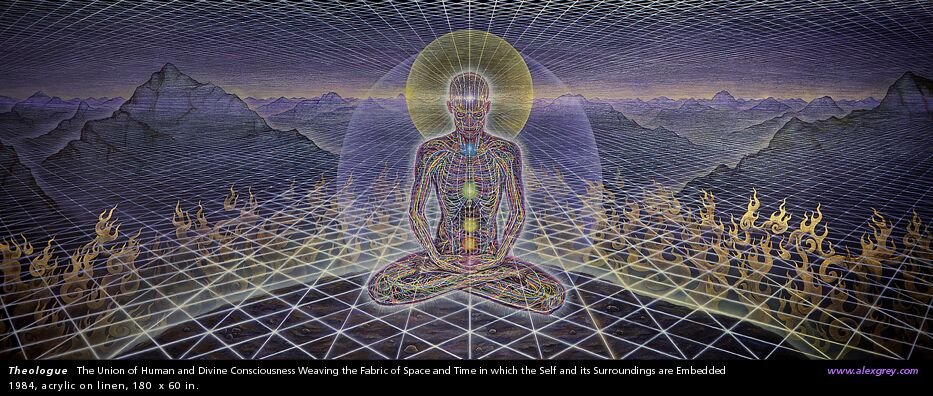Insomnia Babbling, Vol. 726
Eyes puffy, movements sluggish, brain fuzzy. Can't remember my last full night of sleep. Caffeine is a poor substitute for sleep. Cubicle grey death. Digits in, digits out. Pixels, logic, bank account. Sipping espresso, listening to the executive schmooze the managers. Predatory laughter. Eyes glaze.
American corporations have perfected the model of a totalitarian state, but have not the will to use it. By now, other nations have dared. Singapore comes to mind. Here in the "good ol' U S of A," we still value what relative freedom we have, though we loathe the responsibility it brings.
I heard a teenager on NPR the other day, talking about how young people these days interact with technology. (Paraphrasing) "We don't understand privacy. We're monitored closely by our parents, by our teachers, our every movement is tracked electronically. So we don't bother trying to hide anything. We broadcast our movements, our thoughts, our feelings, several times daily, on MySpace, on Facebook, on Flickr, by group-text and video on cellphones. We live publicly." Now parents are paparazzi.
I'm horrified by the thought. When I was a kid, hiding was my favorite activity. My greatest joy was in knowing that at that moment, not a soul in the world could track me down. I had hiding spots everywhere. I had a passive-aggressive deal with my parents; the more they fucked up and pissed me off, the longer I disappeared. My bicycle was a magical teleportation device, freedom incarnate, the only object my parents could threaten to take away. I'd bum a quarter off a stranger in the 7-11 parking lot in El Cajon, call them from a pay phone (remember those?) and bargain. At first, they'd be mad (come home this instant, young man) but soon they'd realize they were not in control, that I had the will, the courage, to run away. Eventually they'd haggle, and we'd work out a deal. I would come home, as long as I wasn't in trouble.
I'm only 31 and already, I'm separated generationally from Kids These Days. These social changes, they speed up from generation to generation. I've often said that while technology changes quickly, social movement changes slowly. I now get the feeling that this is changing, that social movement, though still lagging far behind Moore's Law, is catching up. Perhaps someday I'll propose my own law, in some obscure computational neurosociology journal that doesn't exist yet, and never will be on paper.
William Gibson, whose futurism cred was solid from 1982, when he coined the term "cyberspace", to 1999 when he announced he could no longer writer scince fiction (the future is unknowable because the present is incomprehensible), believes that all social change is technologically driven. If that is so, then this gnawing anomie, this hyper-accelerated ennui, this rootless social millieu in which we tenuously reside, this whirlpool of change, will become a blender. Maybe it already is.
All social institutions are quickly losing credibility. The government is a sold-out auction house, regardless of the tenants. The citizens never tire of trying to vote themselves money from the treasury, while ignoring crimes of the highest order. The fourth estate has been discredited, with most newspapers going bankrupt, and cable news reduced to incoherent babbling by lunatics. Democracy's sheen has worn off; every democratic election everywhere in the world is immediately followed by cries of foul by the losers, the vote machines now computerized, their source code a patented trade secret making a profit for corporations whose boards contain almost as many conflicts of interest as the government weapons contractors. The banking system has been exposed as a massive shell game with a back-door into the public's pocket; a baffling, poorly-designed global scam, Ponzi writ large with magic wands and slick PR propaganda. The stock markets are certainly a blender, whose movements can no longer be understood, even by the technorati who run them, the quants and algos of the early 21st century. Public schools pathetic babysitting prisons, private schools indoctrination centers for the investment class.
And yet, people still make love, still have babies (though not through the vagina as often as in most of human history). People still write songs, though few of them feel authentic anymore. Having grown up in the age of CD's and Ipod's and mp3's, we've heard millions of songs by now, and they all start to sound the same after a while. The last musicians who never heard recorded sound performed before my grandmother was born. All music is now derivative, unless you want to get way out and make industrial feedback weirdness with no time signature and no melody. People still write poetry, but few still read it. I can't quite wrap my head around the impact of waning vocabulary amidst growing visual literacy.
People still get old, but as they do, they become more cybernetic. Hearing aides, contact lenses, pacemakers, tooth-fillings, knee replacements. Their bloodstream pumps with artificial additives- drugs for cholesterol, for diabetes, for headaches, for weight-loss, for rock-hard 80-year-old erections. Old people these days are a work of art, crafted in factories by scientists working in shifts.
Trees still grow. Birds still sing. Rain still falls. And sometimes, two people connect. Deeply. Intimately. Two pairs of eyes, reflecting each other in comfortable stillness. Emotional presence. Maybe things don't change that much after all. Maybe that spark, that connection, that presence, remains. Maybe the relentless onslaught of technology, the bewildering social madness we internalize, maybe it can't change love. Maybe love is an unassailable abstraction. Maybe no matter how much people change, love never does. It keeps us sane. Keeps us human. Keeps us coming back for more.


No comments:
Post a Comment